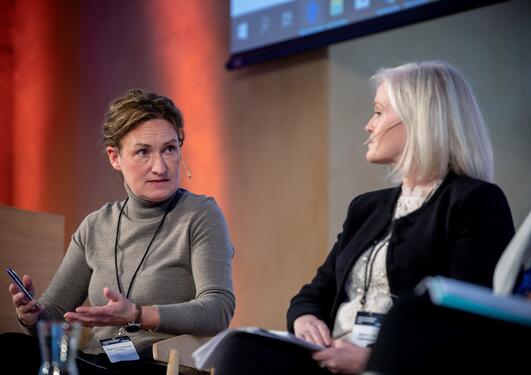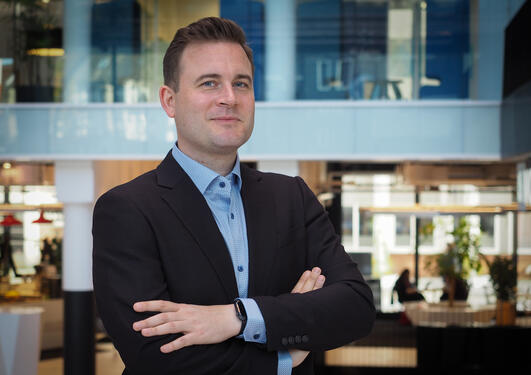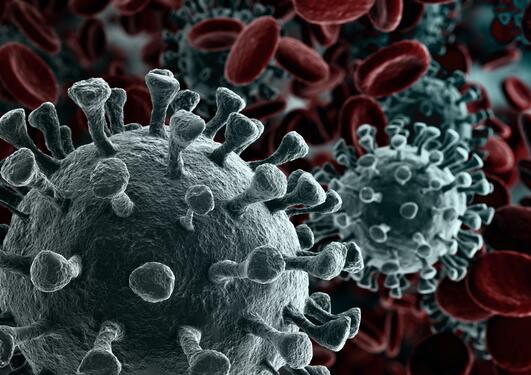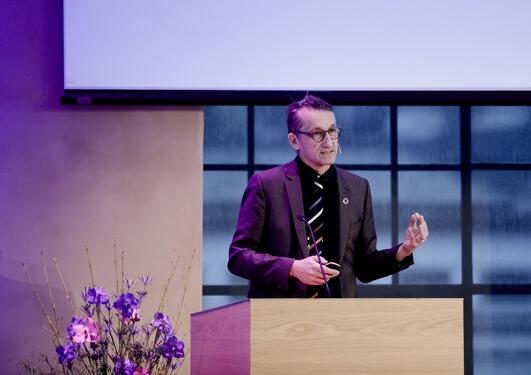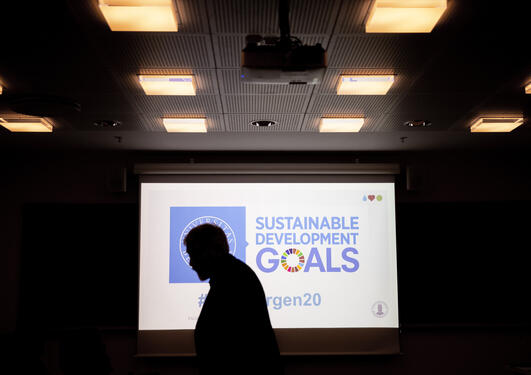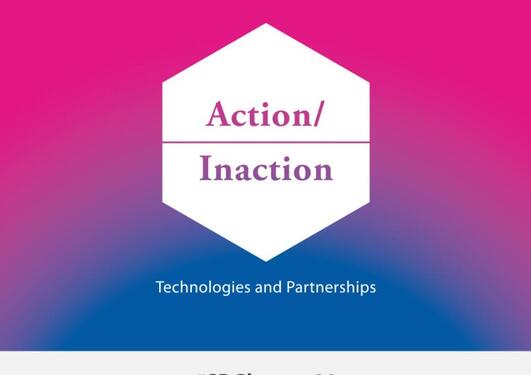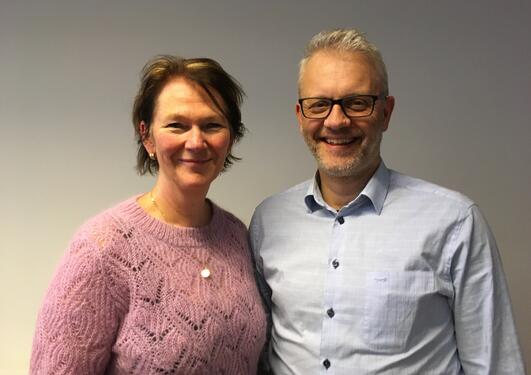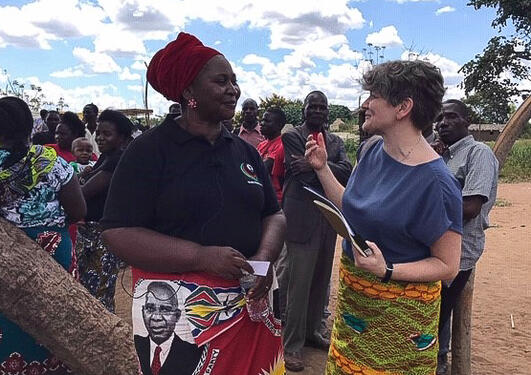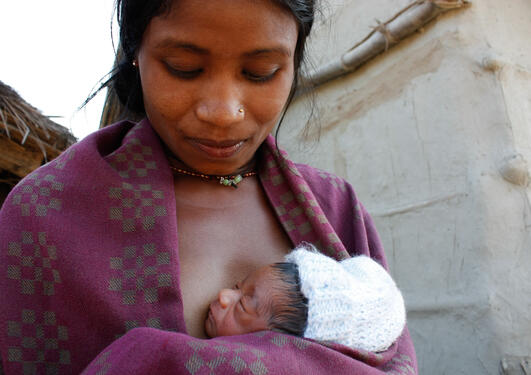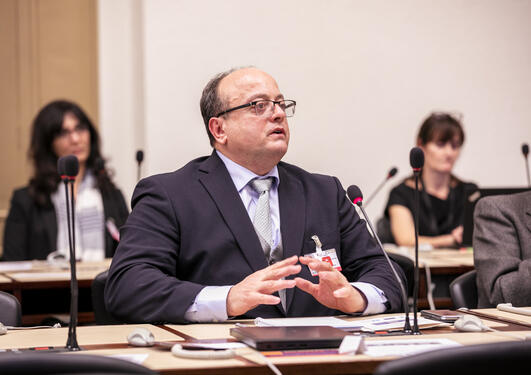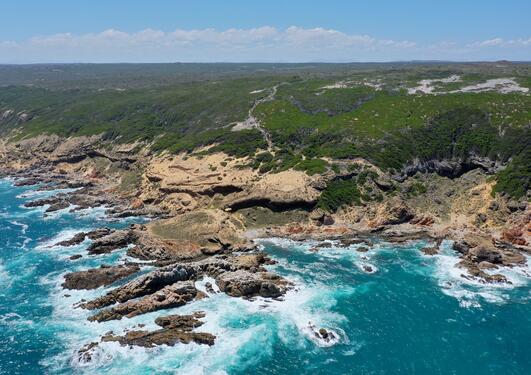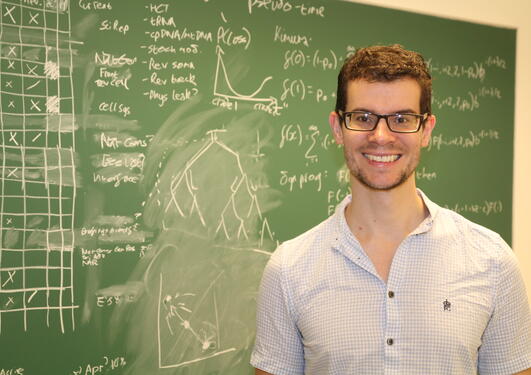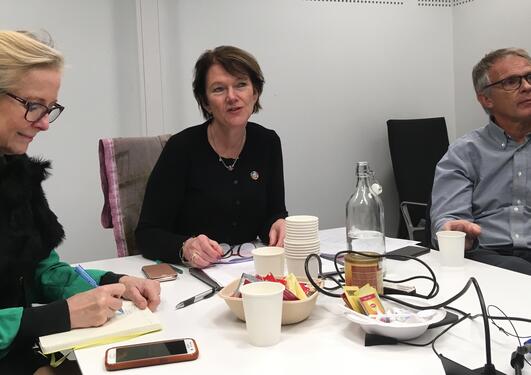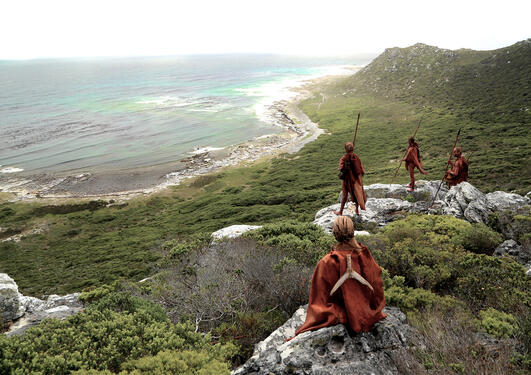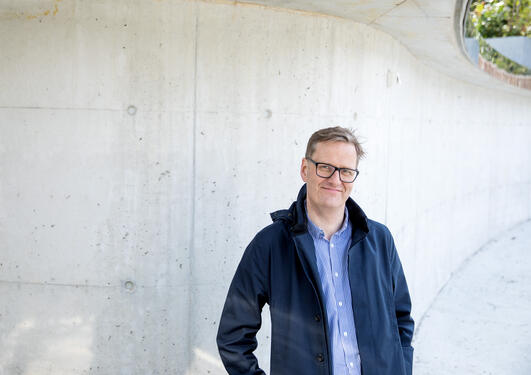News archive for News
In a meeting on biological diversity on the high seas, scientists and other actors gave valuable advice to representatives from Norway’s Ministry of Foreign Affairs before final negotiations on regulation of natural resources outside of national jurisdiction.
Christoph Trattner actually wanted to be a chef. Now, he wants to help you avoid digital junk food.
The archaeologists who found the world's oldest man-made drawing are back in the South African fields in search of new discoveries. Follow their day-to-day blog and see what happens when they experiment with heat and fire to get a better understanding of how humans lived 100 000 years ago.
In a special workshop during the SDG Conference Bergen a group of leading international researchers presented their visions for improving science advice to decision-makers.
The coronavirus outbreak (COVID-19) is confirmed as pandemic by WHO, 11. march. To what extent should we fear the coronavirus? We have asked virus expert Professor Rebecca Cox.
Moving from inaction to action was the overarching theme at the third national SDG Conference Bergen in February 2020. The debate was on what role technology can play to achieve the 2030 Agenda.
The SDG Bergen Policy Briefs series was presented to researchers gathered for a workshop on science diplomacy at the 2020 SDG Conference Bergen.
Action was the key word at the 2020 SDG Conference Bergen, the national conference for the university sector in Norway. Stream the entire conference here.
Four SDG14 targets are maturing in 2020 and with the University of Bergen's leadership in ocean science and sustainability, the university will take these targets to decision-makers over the course of the upcoming year.
– Most often the priviliged are the winners in politics, and who is priviliged depends on gender, says professor Ragnhild Muriaas, who has lead the research project Money Talks.
When newborn babies with low birth weight are held close to their mother´s bodies throughout the day, their chance of survival increases substantially.
The University of Bergen political scientist Hakan G. Sicakkan has been named as one of the members in the UN Global Academic Network of migration experts.
As many as 50 per cent of women suffering from cardiac arrest are given insufficient treatment, because the heart failure was not caused by a heart attack.
The archaeologists who found the World's oldest man-made drawing are back in Blombos Cave in search of new discoveries. Professor Henshilwood welcomes us to the cave to show us his team at work as they dig for clues that can tell us how early humans lived.
UiB and Imperial College researchers have developed a tool which predicts how progressive diseases like cancer and malaria develop in individual patients. In addition, the tool uncovers how bacteria develop resistance to certain drugs.
In November 2018 the University of Bergen was officially announced as the leader of the SDG14 Cluster for the International Association of Universities (IAU). In November 2019 the IAU SDG14 Cluster met for the first time – at least virtually.
New digital technology makes it possible to recreate the lives led by our ancestors 100,000 years ago.
According to Håvard Haarstad, scientists have to commit to doing everything they can to get society moving in the right direction. His own commitment to saving the world earned him a night in prison in New York.
Pages
- 2025
- 2024
- 2023
- 2022
- 2021
- 2020
- 2019
- 2018
- 2017
- 2016
- 2015
- 2014
- 2013
- 2012
- 2011
